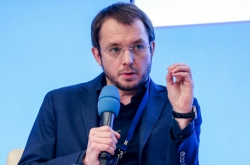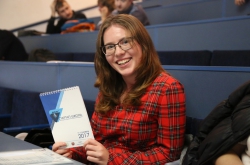Student years: Military Department, student initiatives and dorm life
One part of your current professional activities is developing educational programs. Did you study anything of the sort at ITMO?
Enrolling at ITMO, I chose the university’s Military Department with a major in information security. I wanted to become a super specialist in this field. During my studies, I eventually came to realize that it wasn’t exactly what I wanted, but I still powered through and graduated with an honors diploma. Parallel to that, from my third year at uni I started to search for “my thing”. I had a gripe with that very conservative format of studies everyone comes across at school or university. So, gradually, I reached the conclusion that something needed to be changed here.
Back then, case championships were all the rage in the management field, and I felt that they can be a good fit for the sphere of information security, too. Together with a couple of other students, I started pursuing that thought; we found partners in the industry. We were responsible for all the mechanics, and the industry specialists developed the content side. At one point, our partners expressed an interest in taking the entire initiative into their own hands. Not wanting to lose our time on quarrelling, we handed them the project, with the thought that we’d come up with something better. This was what happened.
You also had a rich public life, as you were into student self-governance. Is this right?
Yes, I was living in the Vyazemsky Lane dorms and one day just decided to turn up at the meeting of floor representatives, listened to the proceedings and realized that I found this interesting. Some time after, I was elected the chair. These were great times; there were a lot of new acquaintances, events, we tried to do things that were useful. This was a big and very important part of my student life as all the milestones and experiences are connected to that in one way or another. Even my participation and victory in the Mister ITMO-2014 contest had to do with that. I look back at this experience with a tinge of irony now: I wouldn’t have ventured into participating hadn’t I felt the support and treated this contest like just another adventure.
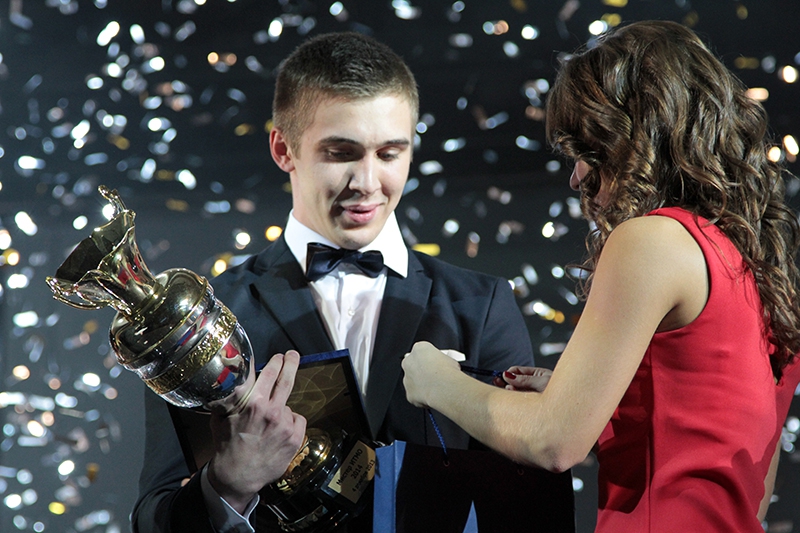
Which of your accomplishments as chair are you especially proud of?
The way we beautified the dorms’ inner courtyard. It wasn’t very pleasant to look at when we were living there. I decided to prove to the university administration that the student government is not just a horde of good-for-nothing youths, that we really could change something in the way we lived and studied for the better. We organized a cleanup event, I went door-to-door nudging all the students living in the dorms to come. They trusted us because we truly cared about them: set up fun get-togethers, gave out blinis on Maslenitsa, so lots of people, must be a couple hundred, showed up at the event and contributed to the common effort. We planted a lawn and shrubs, which are still there, and tidied up the bike garage. Later, I even won a “Student of the Year” contest in the nomination “Student Self-Governance”.
How do you remember your student years?
With warmth, I should think. The university gave me friends that still remain the core of my social circle. Also, the experience of organizing different activities and participating in them: everything went into the cookie jar of what I am and what I do now.
From information security to learning experience design
When did you seriously start thinking about creating educational programs?
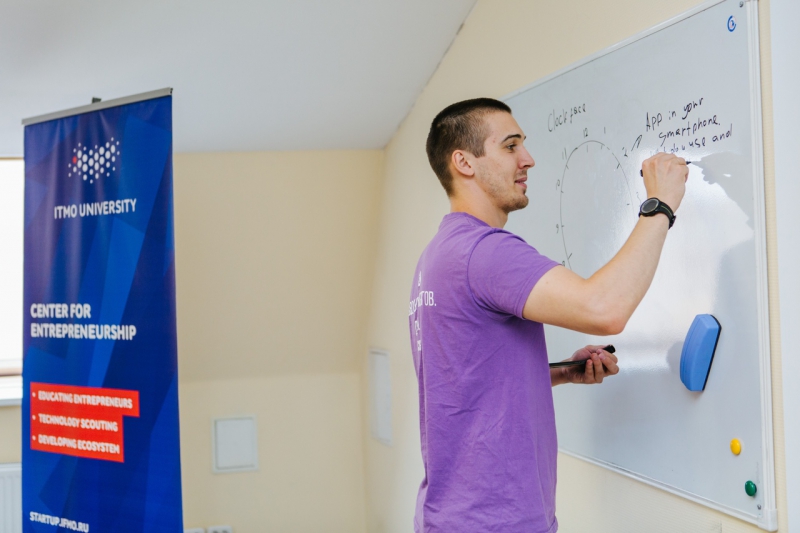
I was in my fifth year, right in the middle of writing my thesis. I’d thought for a long time about the topic and eventually decided on something at the intersection of education and information security, to labor not just at some abstract story but one that would be interesting to me. Before we started doing case championships in our third year, we had acquired some experience in organizing quests. At first we organized them at the scale of our dorms, then we moved to the city level. Then I noticed that I really like to think through and create various game mechanics for tasks. Since that time, I switched to commercial orders. The first ones we collaborated with were information security companies, as I understood their specifics. Now, of course, we are working with a huge range of organizations from various fields: with schools, universities, commercial structures.
Why did you decide to do a Master’s degree then, instead of just continuing to work?
I came across the program “Technological Entrepreneurship and Development of Innovations”, which included an opportunity of launching your own startup. I thought that this was a cool way of bumping up your knowledge, and if I could do a Master’s degree then why not do it? In the course of my studies, I managed to go on an exchange to China and do an international MBA course there. So Master’s studies were very useful and interesting to me. What’s more, I think that environment is very important on programs like mine: the majority of those I studied with are now successfully running their businesses or working on very interesting jobs, big projects.
How did you start working at ITMO?
I was offered a job by Nina Yanykina, the then-head of the university’s Innovations Department. I started out while still in my studies, and then shifted to fully-fledged cooperation.
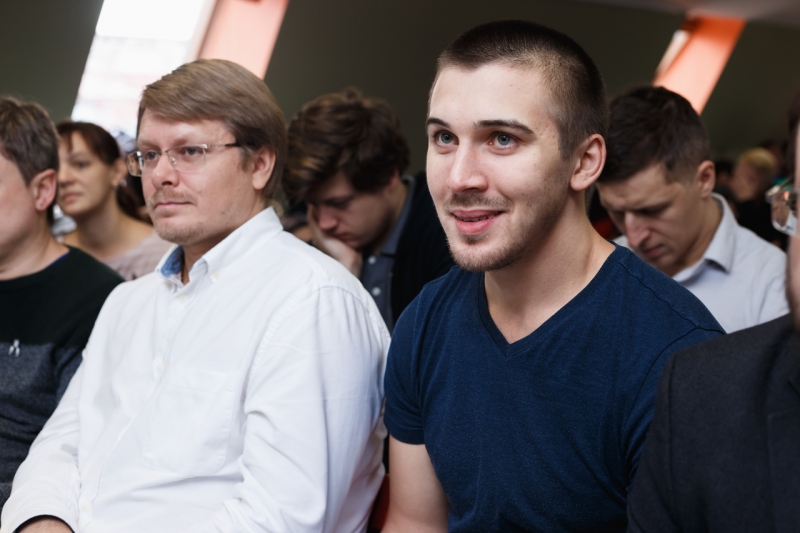
But what about your own business?
I’m still carrying on with it. Its specifics is that a team is assembled for a specific project, and when the task is complete, we go about our business but still stay in touch. Thus, I don’t need to keep a fully staffed office running on a constant basis, which allows me to work at the university with the projects a person external to these processes may not encounter, yet understanding how education works from the inside is crucial here. Oftentimes I would take an unpaid leave or worked holidays or weekends. Now I understand that I carved a work format that is ideal for me, where I can diversify my income and partake in the projects I’m truly interested in, and for my full-time employer I can create breakthrough projects just as an employee.
You collaborate with ITMO by creating educational programs, including professional development ones, and teaching some subjects. Given that you have your own business, why bother?
This isn’t a question of money. My business covers all of my needs, but working at the university provides me with a sense of connection to the educational environment. It’s difficult to develop projects in this field when you’re out of touch with its trends and specifics. For instance, at ITMO I taught a course to Master’s students and this allowed me to monitor the dynamics: how they grow in knowledge, which approaches really work and which don’t, and how their motivation to study could be maintained. No external client could give me such an experience.
Tell us about the most interesting projects you’ve implemented.
I think that my professional activities could be summed up under the term “learning experience design”. In this capacity I launched several large projects. First, for ITMO I created a tech entrepreneurship game. Its gist was that all teams are given similar portfolios of tech projects they need to manage, and the team that does it in the most effective way wins. The advantages of this game is that it fuses economics, teamwork and real-world dynamics.
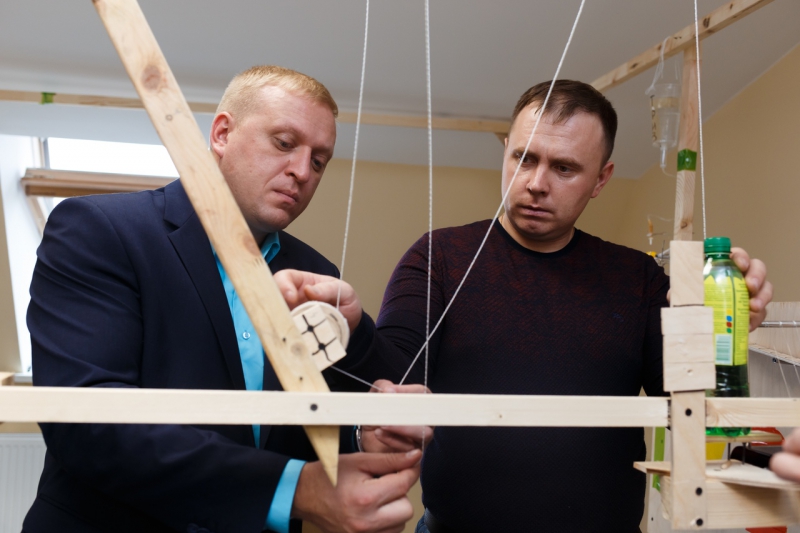
Secondly, there was a course I made for Tyumen State University. It was designed to encompass 825 people and thus probably was one of the largest offline projects of its sort. We organized a one-week course on project management. It was rather difficult because there were so many participants and only five of us, educators. We found a way out by dividing them into groups and assigning each a mentor. Additionally, we developed online educational materials, apps, games, and study literature.
As for the third case, it wasn’t as large-scale but it reflects the direction I’d like to develop in. We created a simulator of a coal-mining company in which participating teams could manage their assets, invest in technologies, choose a strategy and yield profits. Everyone starts out with equal conditions, so the final results depends on only their management skills.
Education trends and plans for the future
What role does gamification play in new educational formats?
A very important one, that’s for sure. Some time ago, it was with it that I started my project “Teach in Game”. I considered the gamified approach as the cure-all for all educational problems out there. But the more projects I work on, the more I realize that this isn’t the cure-all; that, in fact, there are no universal solutions. It does allow you to solve some tasks faster and better, but sometimes other formats are needed, such as cases, practically-minded courses, workplace-based learning, or just quality educational materials.
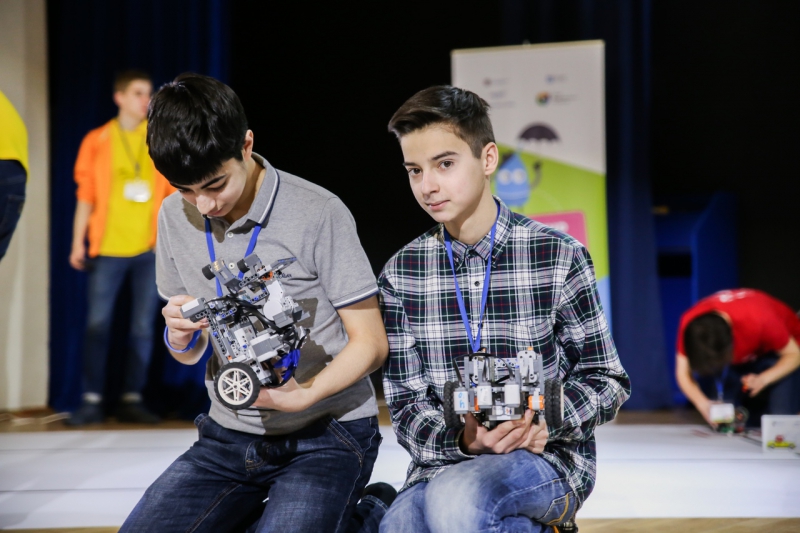
Another important trend in Russian education is online learning. What is your attitude to that?
I think it’s great! Saying that, though, I don’t think it will supersede the majority of educational formats that exist in Russia. The thing is that when I remember my school years and look at today’s pupils, I realize that the classical education system doesn’t foster independent learning, no one shows you how to stick with online courses until their full completion. Our problem is that we can’t learn effectively: in most cases, we use the models we were taught in our childhood, at school, which is either copying the teacher or performing typical tasks. There’s nothing that would have taught you the culture of further learning or cultivating self-motivation. And changing these societal practices is crucial, because only this will change the basic approach to education. In a wider sense, online learning has a lot of potential.
Before the interview you have shared that you’re currently on parental leave. What motivated your spouse and you make such a decision?
This is a very cool experience, actually, and I highly recommend it. Apart from this, when I was working at the university, I would often take unpaid leave to pursue my own project, so the long vacation provided by parental leave gives me an opportunity to take some rest from the rhythm and schedule I had during recent years.
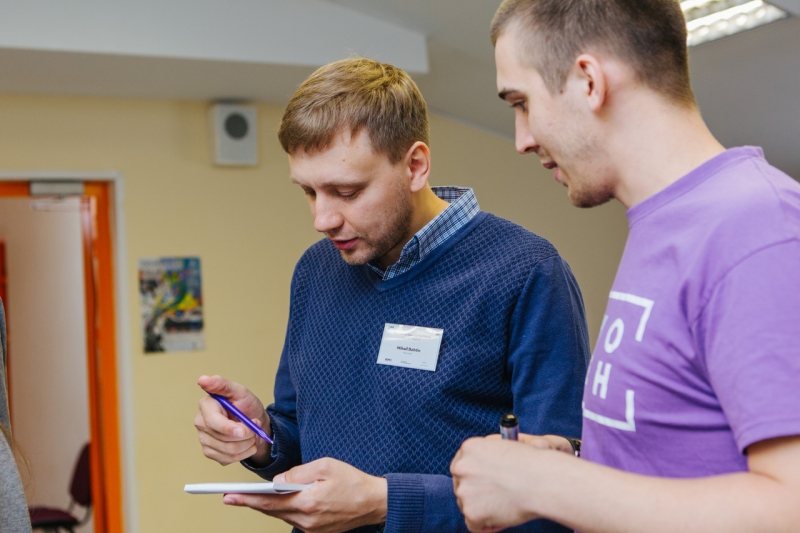
What are your professional plans?
I’d like to get some international experience. I’d be interested in working abroad for some time, maybe somewhere in Asia, because this region has a more advanced approach to technologies. But this would be a temporary experience because I’ve no plans to abandon my work at the university or my own business, especially since I have a couple ideas in the pipeline that are closely tied to IT solutions and upscaling opportunities. I have also got into the idea I promoted while working at the Institute of Entrepreneurship: that the university should become a center of attraction and build around itself a community of graduates, public organizations and private companies. I myself would like to remain part of this ecosystem.




